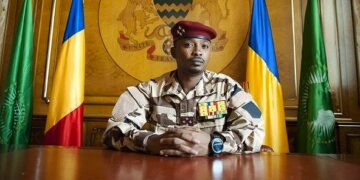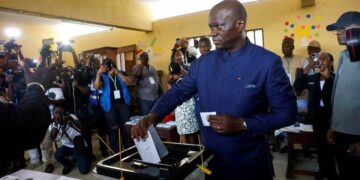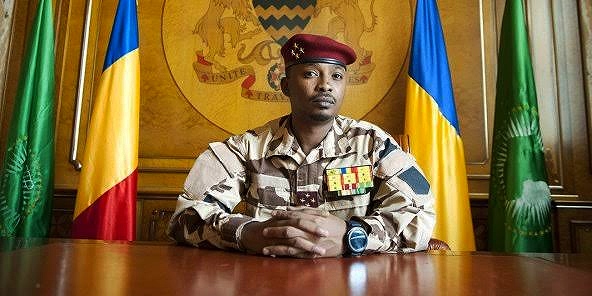By John Ikani
Chadians have given their nod to a new constitution in a vote held on December 17, with critics expressing concerns about the potential consolidation of power for junta leader Mahamat Idriss Déby.
The government commission overseeing the referendum reported an 86 percent approval rate, drawing participation from approximately 64 percent of the eight million eligible voters.
The results are awaiting final confirmation from the Supreme Court on December 28.
Chad’s military authorities view the vote as a crucial precursor to next year’s elections, yet many opposition figures argue it merely paves the way for the military leader, who assumed power in 2021 following his father’s death.
The junta’s commitment to a return to democratic rule after seizing power in 2021 is met with scepticism by opposition leaders.
The current military leader’s father, Idriss Déby, took control 33 years ago in a coup. Former President Déby met his demise on the battlefield during a clash with insurgents.
The proposed constitution retains Chad’s unitary state status, a feature present since its independence.
Opposition voices advocating for a federal state as a catalyst for development find themselves disappointed.
Despite calls for a boycott from several opposition groups, the government asserts a 64 percent turnout. Max Kemkoye, head of an opposition group, contends that the actual participation was lower than reported, claiming that the boycott was widely observed.
Yoyana Banyara, head of the Federal Bloc, accuses authorities of manipulating results, branding it a disgrace for the nation. Some dissenters had hoped that a ‘No’ vote could lead to the establishment of a federation.
Brice Mbaïmon Guedmabaye, president of the Movement of Chadian Patriots for the Republic (MPRT), and coordinator of the “No” front, questions the credibility of the results, asserting that the people’s opinion has been hijacked. Despite minor dysfunctions, electoral authorities describe the referendum as a “smooth” process.
The “Yes” coalition, led by transitional Prime Minister Saleh Kebzabo, welcomes the results, emphasizing the necessity of respecting dissenting voices among the 14 percent who voted against.
The “Yes” camp contends that the federalism proposed by the opposition would breed “separatism” and “chaos.”
The approved text advocates for a “unitary and decentralised state,” concentrating most power in the head of state. Mahamat Déby, who initially pledged an 18-month transition to elections after his father’s death, has since altered the timeline, delaying elections until 2024 and positioning himself to run for president in the upcoming vote.

































